#Mrinal Sen
Explore tagged Tumblr posts
Text



Mrinal Sen - Padatik (1973)
35 notes
·
View notes
Text






Antareen (The Confined) | Mrinal Sen | 1993 | India
16 notes
·
View notes
Text

Mrinal Sen - Padatik (1973)
20 notes
·
View notes
Text




Ek Din Achanak (1989) | dir. Mrinal Sen
#ek din achanak#ek din achanak 1989#mrinal sen#uttara baokar#shabana azmi#roopa ganguly#arjun chakraborty#indian cinema#hindi cinema#cinema#movies#films#world cinema#classic cinema#1980s#cinematography#indian movies#hindi movies#bollywood movies#old bollywood#bollywood#indian films#bollywood films#hindi films#parallel cinema#cinephile#aesthetics#aesthetic#film scenes#movie scenes
10 notes
·
View notes
Text

Mrinal Sen, May 14, 1923 – 30 December 2018.
With cinematographer Carlo Varini during the making of Genesis (1986).
7 notes
·
View notes
Text
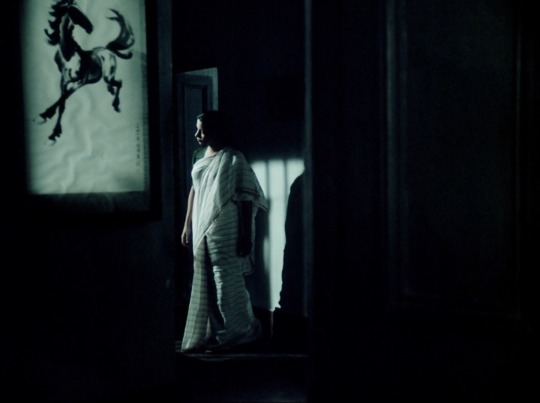
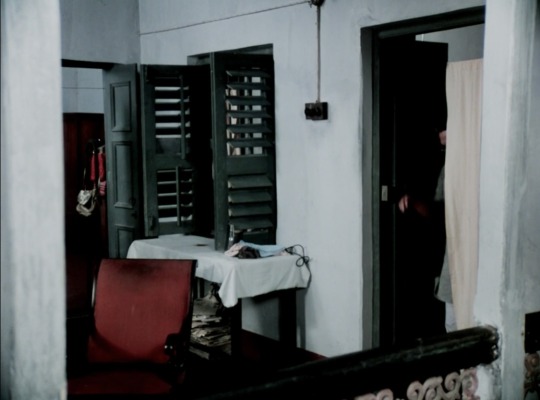

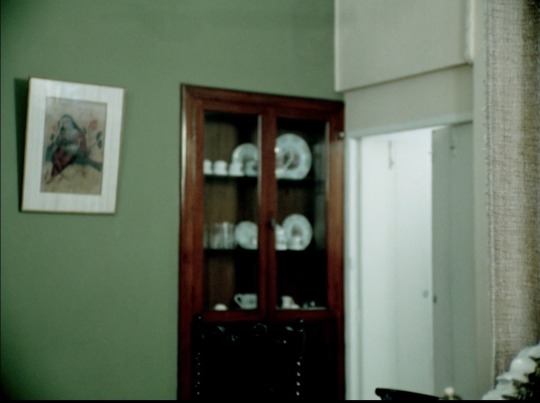


Suddenly One Day (Mrinal Sen, 1989)
17 notes
·
View notes
Text










Ek Din Pratidin (1979) dir. Mrinal Sen
#film blog#ek din pratidin#mrinal sen#bengali film#asian cinema#indian films#bengali directors#indian directors
3 notes
·
View notes
Text




















CHAALCHITRA EKHON [Kaleidoscope Now]
Anjan Dutt, 2023
0 notes
Text

Calcutta 71
(Calcutá 71)
IND, 1972
Mrinal Sen
8/10
Revolucionário
Este é um filme que claramente demonstra que há um cinema indiano para além de Bollywood e que nem sequer é novo. Na verdade, Satyajit Ray já filmava o realismo indiano desde a década de 1950.
Este é um filme difícil de classificar. Se no essencial é uma obra crua e realista, que denuncia a miséria de uma cidade (e de um país) onde as desigualdades são gritantes e as carências chegam ao nível da mera sobrevivência, por outro, na sua estrutura segmentada, na mensagem por vezes revolucionária, tem ecos de nouvelle vague, sobretudo após o Maio de 1968. Há umas breves influências de Godard e uma frescura de jovem contestatário de 1971, que contrastam claramente com a linguagem cinematográfica habitual do subcontinente indiano.
Um belo filme sobre uma realidade terrível.
Revolutionary
This is a film that clearly demonstrates that there is an Indian cinema beyond Bollywood and that it is not even new. In fact, Satyajit Ray had been filming Indian realism since the 1950s.
This is a difficult film to classify. If in essence it is a raw and realistic work, which denounces the misery of a city (and a country) where inequalities are glaring and deficiencies reach the level of mere survival, on the other, in its segmented structure, in the message that is sometimes revolutionary, it has echoes of nouvelle vague, especially after May 1968. There are brief influences from Godard and a freshness from the young protester of 1971, which clearly contrast with the usual cinematic language of the Indian subcontinent.
A beautiful film about a terrible reality.
1 note
·
View note
Link
Mrinal Sen was an Indian film director and screenwriter known for his work primarily in Bengali, and a few Hindi and Telugu language films. Regarded as one of t...
Link: Mrinal Sen
0 notes
Text

Happy Birthday to #ShyamBenegal, born on December 14, 1934.
He's a well-known director and writer famous for his great movies and documentaries. Shyam Benegal has been a major figure in parallel cinema since the 1970s. He has received many big awards, like the Dadasaheb Phalke Award in 2005, the highest honor in Indian cinema. The Indian government also awarded him high civilian honors: the Padma Shri in 1976 and the Padma Bhushan in 1991.
Born in Hyderabad, Benegal's career began as a copywriter. His first documentary, "Gher Betha Ganga," was released in 1962. He became known for his first four films - "Ankur," "Nishant," "Manthan," and "Bhumika" - which were key to the new wave film movement. His films like "Mammo," "Sardari Begum," and "Zubeidaa" won several National Film Awards and form what's known as the Muslim women Trilogy.
Benegal's career also included teaching at the Film and Television Institute of India and making over 900 sponsored documentaries and advertising films. He was involved in early TV projects and continued making influential films in the 1970s and 1980s, like "Junoon" and "Kalyug." He explored different themes, including political satire in "Mandi" and human relationships in "Trikal."
In the 1990s, Benegal made impactful films about Indian Muslim women and moved into mainstream Bollywood with "Zubeidaa." He also tackled biographical subjects like "Netaji Subhas Chandra Bose: The Forgotten Hero." Critiquing the caste system in "Samar," he continued to win accolades.
Currently, Benegal heads the Federation of Film Societies of India and runs Sahyadri Films. He has written three books based on his films, contributing significantly to Indian cinema.
#MrinalSen, Shyam Benegal and #SatyajitRay.
0 notes
Text
Akaler Sandhane by Mrinal Sen Bengali Book pdf
Akaler Sandhane by Mrinal Sen, Bengali Book pdfe-book name- ‘Aakaler Sandhane’ Full screenplay,Written by – Mrinal Sen,Type of book- Bengali Book,File format- PDF,PDF size- 31 Mb,Pages- 86,Uploader – Saikat SenguptaQuality- Good, no watermark ‘Akaler Sandhane’ is a photo of the photo shoot. Some questions while taking pictures, to myself, to others. There are many photo-taking tricks, madness,…

View On WordPress
0 notes
Note
For the ask game
14 and 8!
thank you!! <3
14. Who is your favorite director? Why?
hard to pick just one, but if i have to, i'd say mrinal sen. because he had such a raw and unflinching way to look at and show the issues of his country, india (which are, in some ways, issues not just restricted to india, but he obviously looks at how they present in india). he wasn't afraid to show the ugly truth and to denounce the injustices that pervaded the country (and in some ways still do). i love the way he's able to sometimes mix fiction and documentary, and i think some of his movies that i watched had insane editing
8. Has a film ever made you extremely angry?
ohhhhhh yeah. a fantastic woman (2017). just literal trauma porn about a trans woman who doesn't experience one single good thing and is treated like shit by everyone around her in the vilest, most overt ways. which, i'm not denying it happens, but the film clearly only wants to show the most obvious transphobia and 1) it's stomach turning to see a trans woman on screen go through so many hate crimes and invasions of privacy and just the worst shit ever; trans people, especially trans women, don't want to see a movie directed by a cis man that shows how utterly, always horrible life is for a trans woman character; 2) in doing this, in showing only the most extreme, overt transphobia, it tries to tell cis audiences that that's the only way they can be transphobic and mistreat a trans person. it's like giving them a pat on the back like, don't worry, if you're not doing this really horrible thing to a trans woman in your life, you're safe, you can't be transphobic and have no self reflection to do (untrue most of the time! as shown by the vastly positive reception this film got from cis people). anyway, i'd have more to say, and i especially had more to say when the movie was fresh in my mind (it's been over 3 years, thankfully it's not anymore) but suffices to say it's a movie about a trans woman made by a cis man for a cis audience
2 notes
·
View notes
Text
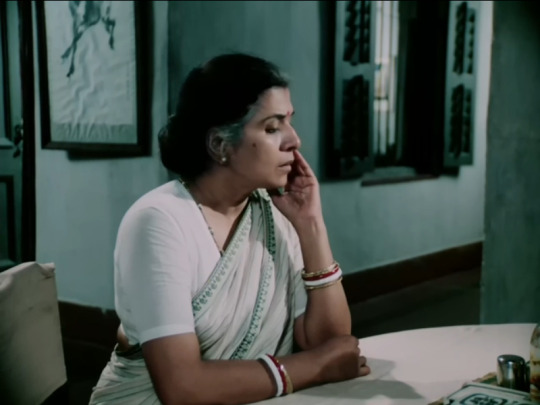
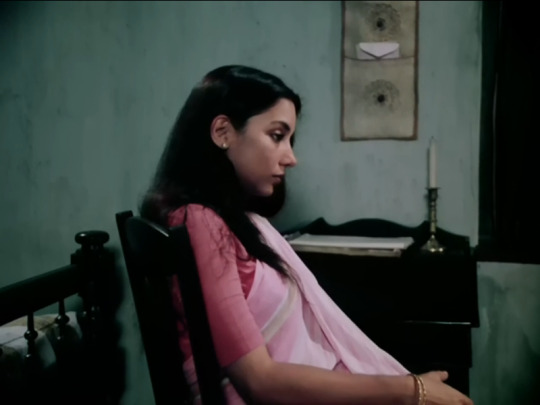
Ek Din Achanak (1989) | dir. Mrinal Sen
#ek din achanak#ek din achanak 1989#mrinal sen#uttara baokar#shabana azmi#indian cinema#hindi cinema#cinema#movies#films#world cinema#classic cinema#1980s#cinematography#south asian cinema#asian cinema#indian movies#hindi movies#bollywood movies#old bollywood#bollywood#indian films#bollywood films#hindi films#parallel cinema#cinephile#aesthetics#aesthetic#film scenes#movie scenes
16 notes
·
View notes
Text
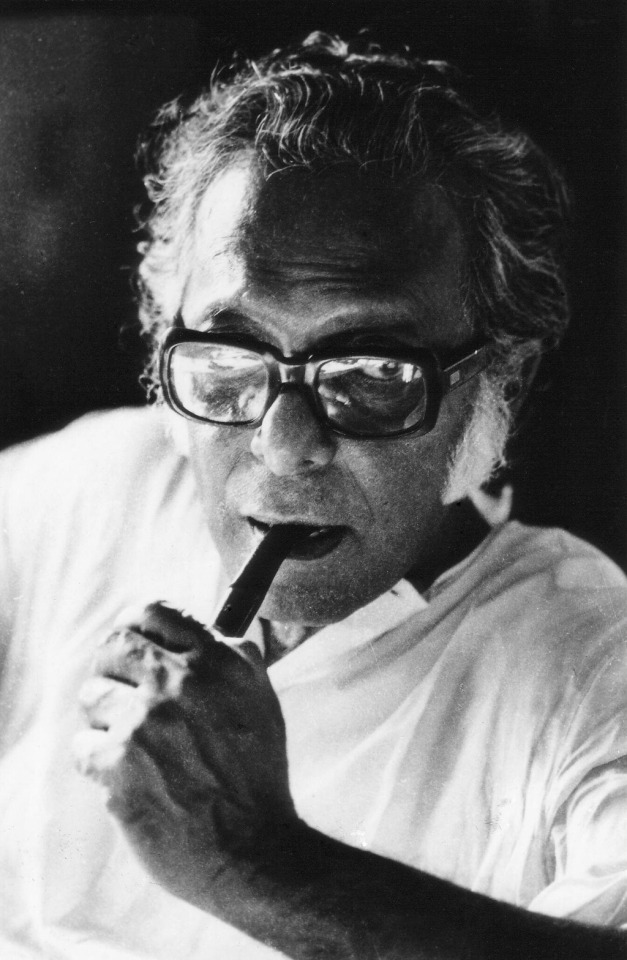
Mrinal Sen, May 14, 1923 – 30 December 2018.
9 notes
·
View notes
Note
Hello! I'm writing a final Essay about Indian parallel cinema or new Indian cinema and I kinda got lost, there are so many movies and themes to explore! since the deadline is pushing me, I don't have much time to explore it deeply, i've watched Charulata and Apu's trilogy but couldn't move forward from there. (all of them mind-blowingly amazing btw) Could you please please please give me some direction on which way should i keep looking/researching or any of your favorite themes that are recurring in 50's-70's Indian "new wave" films ? anything would be really helpful. Thank you in advance, hope you have an amazing day!!
oh my god, i did not see this until now as i typically only see notifications for this blog when i'm on desktop, i'm so sorry!! i really hope this isnt too late to respond. okay so i'm no expert but just some thoughts:
so obviously its a film movement that originated in bengal, a lot of parallel cinema is bengali indian OR bangladeshi, i'm not sure if theres a specific reason you're focusing on indian parallel cinema for your essay but thats something to keep into consideration especially because it spans past the 70s well into the 80s and somewhat 90s so after the independence of bangladesh. and that does impact and put context to the narrative of many films
the themes that are recurring tend to be class consciousness and disillusionment, religious and racial discrimination, casteism, more frank portrayals of the topic of sex, marxist thought, the burden of patriarchal society and expectation, to some extent borderline nihilism in my opinion, essentially the polar opposite of bollywoods pristine glamorized and polished portrayal of life and society that borders on science fiction from how removed from reality it is. in spite of it often.
if you want an outline of some filmmakers, actors, and films that can give you a decent idea of the movement, off the top of my head:
films i can think of that will give you a decent understanding of the tone and themes of the movement at least:
mirch masala
a river called titas and cloud capped star
donkey in a brahmin village
the apu trilogy and charulata as you said as well as devi and shatranj ke khilari. (the coward is also one of my personal favorites but not a necessary watch)
mammo, mandi, and bhumika
dont cry for salim the lame, the strange fate of arvind desai
arth
rat trap
maya darpan
duvidha, nazar, uski roti
quintessential filmmakers to at least get a decently rounded understanding (in my opinion):
saeed akhtar mirza
mani kaul
satyajit ray
ritwik ghatak
shyam benegal
mrinal sen
actors whose work or work during the period of early parallel cinema to look to:
smita patil (!) (probably the most important to look into if youre interested in this movement)
shabana azmi (early work)
madhabi mukherjee
soumitra chatterjee
naseeruddin shah (early work)
om puri (early work)
all of this is really just what came to mind immediately, i had planned on writing up a comprehensive summary of parallel cinema and what i considered essential viewing and themes and i will do that eventually, but i wanted to answer this as quickly as possible so i could easily be leaving out an insane amount of things. also i primarily used the english translations for these films unless i couldnt remember them. if youre in the usa (and maybe outside of it as well im not sure) MANY of these works or works made by these directors are on youtube or archive.org. i hope this is of some help and eventually i will post more comprehensive detail + scans of books i have about this. hope this helps someone and you have a good day!
#asks#anonymous#parallel cinema#this ask was sent about 2 weeks ago im hoping ur deadline wasnt up b4 now :')
12 notes
·
View notes